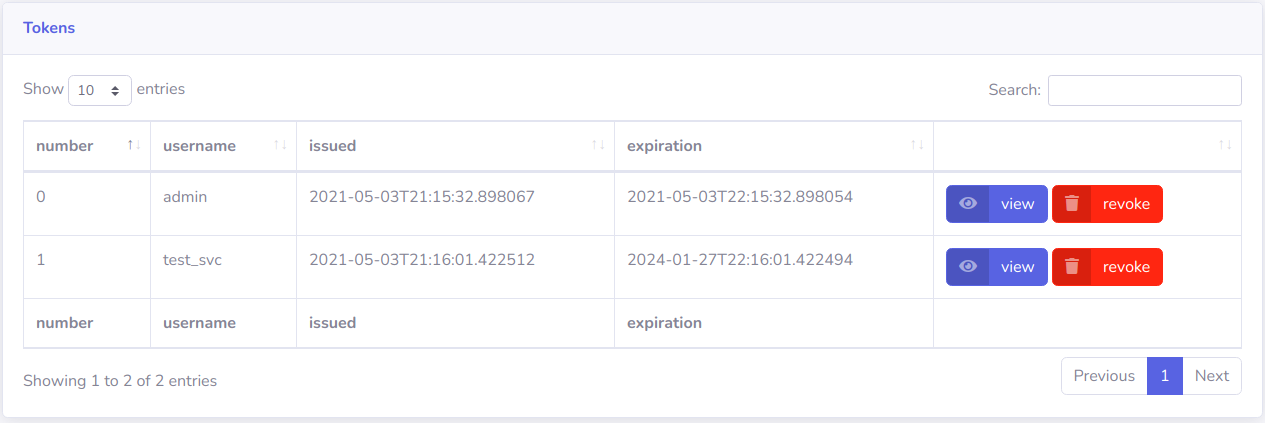RBAC
RBAC, or Role based access control, provides users with very specific sets of permissions based on assigned Groups, Roles, & Actions
User
And end-user / service that accesses an endpoint.
Type - user
user
A user requests a token by providing sending username & password to EasyAuthServer at /auth/token.

Type - service
service
Tokens for services must be generated by a user in administrators group - no password exist for service accounts

Permissions
Permissions are derived from the group or groups assigned to the specific user.
Group
Assigned to Users, and containing a list of specified roles.

Permissions are derived from the roles assigned to the specific group.
Role
Assigned to Groups, and containing a list of actions.

Permissions are derrived from the Actions assigned to the specific Role
Action
Actions are the most granuar permission that can be created to define something that can be allowed.

Tokens
Tokens are created for a specifc user, that contain the full permissions tree for a specific user (Groups, Roles, Actions)

User Token - Expiration
user token
Expires after ~ 60 Minutes
Service Token - Expiration
service token
Expires ~900 days
Consideration on Cookies
Cookies are invalidated by the EasyAuthClient if the token inside the cookie has expired.
Revoking a Token
Once a token is created, it is valid until expiration or EasyAuthServer key rotation.
EasyAuthServer maintains a token registry of issued tokens, containing the underlying username, issue date, expiraiton_date & token_id.
EasyAuthServer updates all EasyAuthServer workers & connected EasyAuthClients when a token is added / revoked.
Tip
Tokens listed in the registry are seen as valid, and tokens which are revoked or do not exist in the registry, will return a 403.
Get Current User
Both EasyAuthServer / EasyAuthClients can determine the current user accessing an endpoint by adding user: str = get_user() to any easyauth decorated endpoint:
#test_client.py
from fastapi import FastAPI
from easyauth.client import EasyAuthClient
from easyauth import get_user
server = FastAPI()
server.auth = await EasyAuthClient.create(
server,
token_server='0.0.0.0',
token_server_port=8090,
auth_secret='abcd1234',
default_permissions={'groups': ['users']}
)
# grants access to users matching default_permissions
@server.auth.get('/default')
async def default(user: str = get_user()):
return f"{user} is accessing default endpoint"